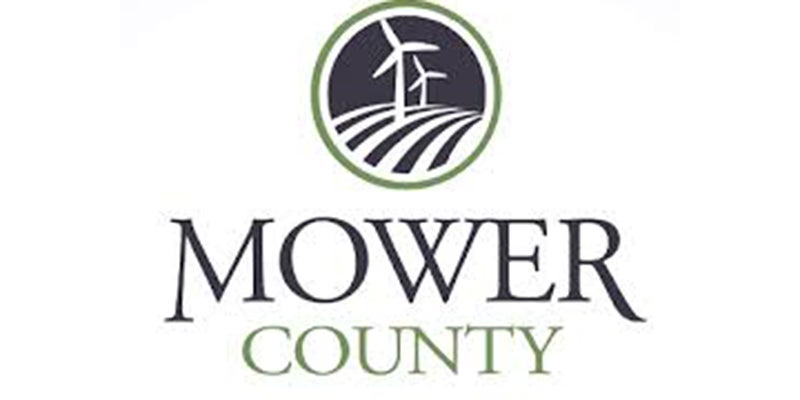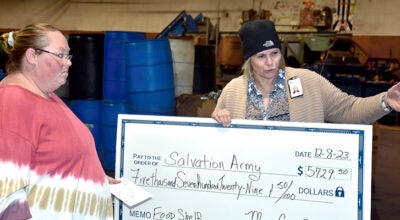Candidate Q&A: Austin City Council – Second and Third Ward
Published 7:01 am Saturday, August 29, 2020
|
Getting your Trinity Audio player ready...
|
Author’s note: This is a continuation of the Herald’s candidate Q&A features with the Austin City Council candidates. For this feature, the Herald reached out to Second Ward candidate Mike Postma and Third Ward Councilman Paul Fischer, who were asked questions about economic development. These are their responses.
1. What type of businesses (or specific companies) have voters told you they would like to see in Austin?

Mike Postma
Postma: When most people talk about specific companies they would like to see in Austin, they generally focus on retail and restaurants. I hear phrases like, “Why don’t they bring in a X” or “Austin needs to bring in Z businesses.” The City (or any government) is not and should not be in the business of selecting and building private businesses.
These chains and franchises make the decision to move to Austin if they think it will be a profitable move for them.
What the city CAN do is work on making Austin as attractive as possible to these investors. A good recent example of this is how the City worked with the DCA and incentivized the renovation of the old Hy-Vee building. This new investor brought new retail to town, some of the very companies I have heard many people wish for. This investment has in turn prompted a new building to be constructed in front of this shopping plaza. All of these investments help broaden our tax base and give citizens more options.
Fischer: Austin is a regional hub and attracts individuals from outside of Austin for both a daily import of workers (5,575) and those frequenting our retail businesses. We’ve been fortunate over the last several years to add retail growth as many other communities see a decline in this area, especially given the COVID-19 pandemic. New retail opportunities help create a basis for other retail expansion (as customers generally prefer several shopping locations), growing our tax base and support of our Local Options Sales Tax collections for important flood protection measures so that this cost is not borne solely by the local property taxpayers. I hear a wide array of desired retail options from residents, so I won’t focus on just one, but what I think is important is a recognition that having these local options keeps dollars local and it is an amenity to have them readily accessible here in our community, thereby helping with our quality of life. I’m happy to support the Port Authority’s efforts as the City Council partners with them to help keep moving

Paul Fischer
development forward. Examples of this are addressing the blight of the former mall, reuse of the former Hy-Vee and new outlot development on 18th Avenue. These show that when proactive measures are taken, good things can happen for Austinites.
Our commercial growth for companies is also strong as a resilient agricultural-based community for a hungry world has kept our major employer solid. Jobs have been added within their operations and this has a strong reciprocal impact in many other areas of our community. We certainly can look for some diversification and we have land readily available for any expansions as well as a great workforce with partners like Riverland. I know the recent (Hy-Vee) distribution center was frustrating, that the online world shifted that from being a possibility, but focusing on partnerships with companies looking to grow in Austin and bring good paying jobs with them is something I’m still hopeful we’ll see. Again, this isn’t a specific business, but rather support for partnering with a company that moves our median income higher and adds more tax value with their new construction. That is the type of business people tell me they want.
2. What existing City economic development programs would you like to see expanded or enhanced (if any)?
Postma: I think that the City has done a great job focusing on increased housing as a means of economic development. Over the last five years, we have seen over 40 new single-family homes get built in response to the tax abatement. That same program spurred the Flats on 21 apartment complex, which offers market rate, Class A apartment units with amenities traditionally found in bigger cities. Additionally, we have seen badly needed income-based housing construction in the Fox Point Townhomes and recently announced River Bend Townhome complex. These all add up to hundreds of new residents in our city.
I would love to see the city expand these housing efforts to include helping homeowners rehab and refurbish some of our older housing stock. A 2019 data analysis done by MNDEED found that over 55 percent of the homes in Mower County are over 60 years old. Many of these are well built homes with solid bones, but given their age need updated utilities, roofing and siding. A few avenues to explore funding this sort of program could be a tax abatement given on the increase in value of the home for improvements made, or a community land grant trust that would enable people access to capital needed to make improvements.
Fischer: We can look to be creative on partnering with our existing local businesses. Recently I learned about the possibility of a micro-loan program for the downtown and I recognize infrastructure costs are steep, so utilizing statutory authority for cities, such as tax increment financing, is something I’m open to. We understand road costs, general costs of city operations and snow plows don’t get cheaper, so I feel economic growth can be an important component of offsetting these costs to our existing taxpayers.
We just approved complementing Mower County’s COVID-19 small business assistance and working with the Development Corporation of Austin to help them as they try to recover from the effects of dealing with the pandemic. This program would provide those with the highest need some relief with a grant of up to $10,000. We’re under some significant budget challenges, but I think my fellow Council members and I would certainly be willing to work with any business that wants to grow our tax base or produce more quality jobs.
3. What key issues do you think the City Council should focus on to foster economic development?
Postma: Housing is a key one I previously noted. The second opportunity is business growth or relocation for companies that are not necessarily retail or service based, but are more industry or technology based. My personal research has shown that these desired industries will move to areas where they see a solid business base and middle-class workforce. Once that growth happens, the service and retail companies follow. The City’s goal then should be to do all it can to expand and attract that industry base.
One of my main responsibilities in my profession is to constantly meet with local employers to learn what their workforce needs are, both short-term and long-term. I am on the DCA board where I have met with companies interested in moving or expanding in Austin and talked with them about the strong workforce we have in town. While COVID-19 has slowed some of these projects, I can tell you that Austin is looking more and more attractive to these companies. Establishing a broader industry base with attractive careers is the best thing we can do for Austin’s economic development.
Fischer: I haven’t mentioned it before, but I would be remiss in not mentioning the importance of housing for our economic growth. Council has addressed this issue by approving a tax abatement program for any single or multi-family housing units. We were able to see 83 market rate units move forward north of town; I understand they are filling up nicely. Housing availability is similar to roads and sewer systems for our businesses as workers need this infrastructure so they have a place to call home in our community. This was made possible in part by our tax abatement. We’ve also advanced affordable housing units by using TIF for 38 townhomes that are now occupied and approved for application another 45 for a possible December award.
We have also purposefully put forward funds to work with a private developer on adding even more units. This plan works to both add housing stock and address areas which have become challenged with some blight. These efforts show the City is ready to partner where we can to advance our economic prosperity. We may not be able to do everything, but I feel confident we’re aware of the challenges and are positioned well to address them as funds allow.
4. Anything else you want to add?
Postma: Despite the current fiscal and health crisis the entire world is collectively suffering through right now, I believe that the future of Austin is bright. I won’t deny that we have some real challenges in the upcoming years ahead. These challenges will be budgetary, infrastructure based, and more.
But where I see challenges, I also see real strength and opportunity. We have an excellent leadership working at the City who see these challenges coming and give the Council time and recommendations on how to prepare for them. We have great staff who work hard to provide our citizens with so many services and amenities. We have a world renowned health system growing and expanding their building to better serve our community. We have a Fortune 500 company that our town has grown with over the past 125 years and one that continues to invest in our city. We have vibrant small businesses who have formed an active Chamber of Commerce. Finally, we have an arts scene more robust than any I’ve even encountered in a city our size. I’m excited for the opportunity to be part of the future that enables Austin to grow for everyone.
Fischer: I would like to thank Austin residents and the Third Ward for the opportunity to serve you the last four years. I look forward to the next four and working for you. Thank you.




